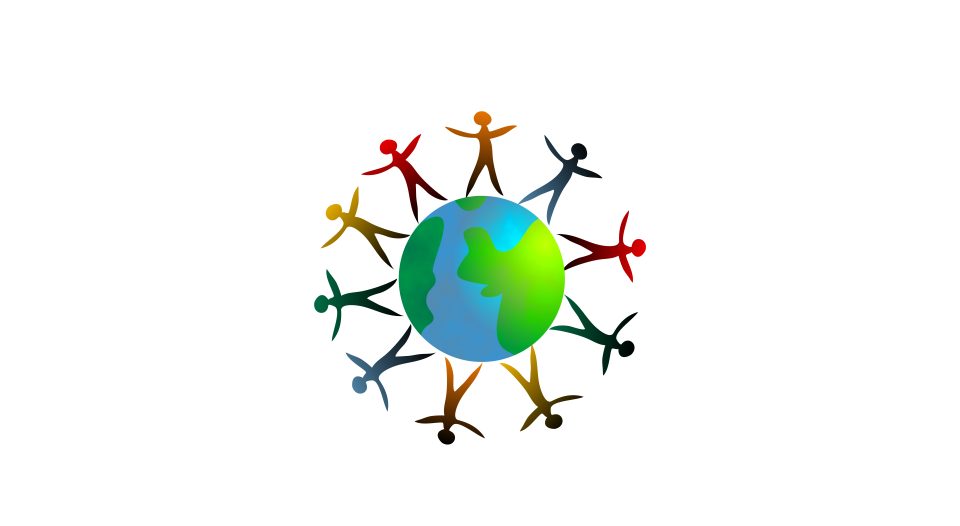Lectionary for May 25, 2025
Sixth Sunday of Easter
Acts 16:9-15; Psalm 67;
Revelation 21:10, 22-22:5; John 14:23-29
I, and countless others, have said it many times before: Christians are not called to be partisan to one political party or another. But—and that is a huge but—I think that you can’t be a Christian follower of Jesus without being political. I mean political in the largest sense, not a narrow, binary American Democrat-or-Republican sense. As an example, our Amish siblings in Christ may be apolitical by staying out of wider American politics. But you had better believe that they are political in that they are deeply concerned for the well-being of their communities and grappling with how to love their neighbors in every sense.
We are all called to care for our neighbors in whatever city/town/village/polis in which we find ourselves. That is the heart of politics. The lectionary passages this week are all about how to love neighbors who are members of other nations.
In the account of God’s unfolding mission in Acts, God wasn’t content to have the gospel thrive in just Africa and Asia. So Paul was given a vision of a “man of Macedonia” begging him to come help the Europeans who were languishing in hopelessness. Paul sprang to action, traveling many days with his entourage before arriving at the thoroughly Romanized city of Philippi. As it turns out, the “man of Macedonia” who called to Paul was actually a woman named Lydia. She wasn’t even from Europe—she was an Asian expat from Thyatira who had grown wealthy selling purple garments to the Roman veterans who had been incentivized to settle in Philippi.
Lydia and all her household were baptized and became Paul’s base for ministry in Philippi. Paul took a chance and engaged folks from another ethnic background and geographic area. But he found that another person from Asia Minor, like himself, was the first person in Europe to open her heart to the gospel.
When we say all people, we really mean all people. Everyone from every nation would be able to see by the light of God and Jesus.
God’s Spirit taking Paul across the Aegean should not have been a huge surprise. As far back as the compilation of the psalms, God’s mission was framed as targeting other peoples. God’s salvation was to be known among all the nations (Psalm 67:2). All the peoples were to praise God (3). All the nations were to sing for joy, because God would judge them (us) all with fairness (4). Again, all peoples/nationalities/ethnicities were to praise God (5). God has a treasured nation, to be sure (Deuteronomy 7:6). But God’s people have never been monoethnic.
Looking forward to the culmination of history, the book of Revelation presents an apocalyptic vision to provide comfort to people in tumultuous times. A New Jerusalem was revealed from heaven as the capital of the New Earth. There was to be no sanctuary in the temple compound, because the radiance of God and the Lamb would give unconstrained light to all the people and banish darkness. And when we say all people, we really mean all people. Everyone from every nation would be able to see by the light of God and Jesus. The only folks who would be excluded from the presence of God’s light are, interestingly, liars and those who practice abominations/idolatry (21:27). People who worship and follow something/someone other than God and who practice deceit would not be welcomed into the parade of nations following together into the one city, John of Patmos proclaims.
The New Jerusalem was presented as a city whose gates never close (25) and that would welcome anyone and everyone (again, except idolaters and liars). From the throne of God and the Lamb in the temple complex (again, without sanctuary) would flow the river of the waters of life (Ezekiel 47), which would water the Tree of Life (Genesis 2:9). The Tree of Life, too long out of reach of humans, would yield 12 different fruits every month. And the leaves would be for the healing of the nations. The Tree of Life would be open to everyone, for healing the hurts and indignities that have plagued peoples for far too long.
In the Gospel reading, Jesus puts no limits on God’s love. Anyone who loves me “will keep my word, and my Father will love them, and we will come to them and make our home with them” (John 14:23). Here we see the fullest realization of God’s politics. God is building toward a world where the gates are always open, and where God dwells with whom God wants. The only distinction, in the final vision, is between those who tell lies or worship idols on the one side, and everyone else from every nation and people, who can see clearly by God’s light of truth.






